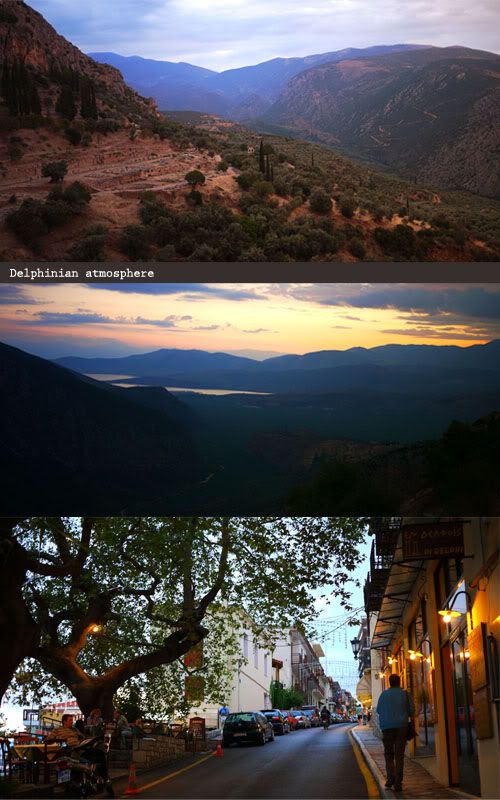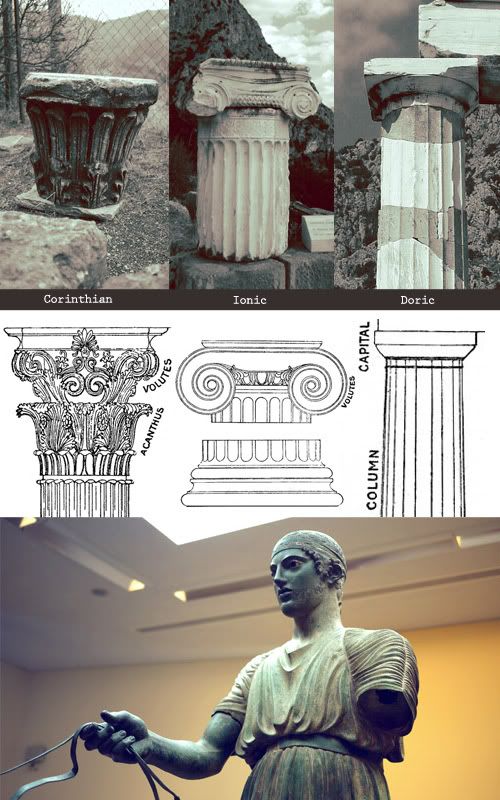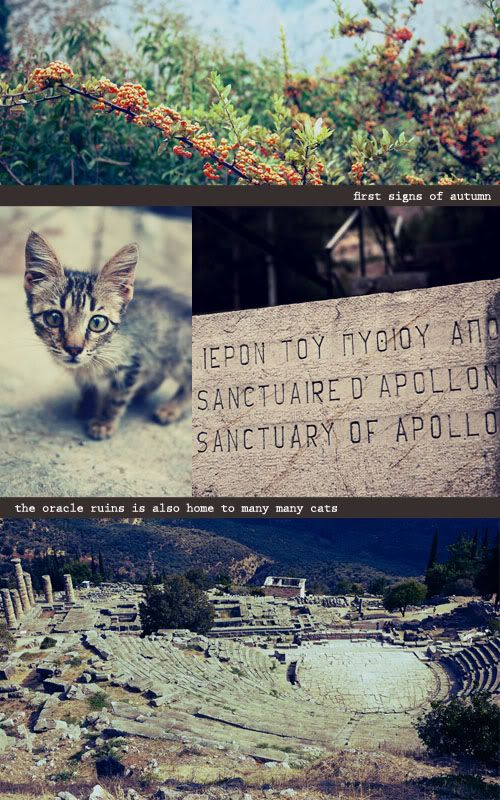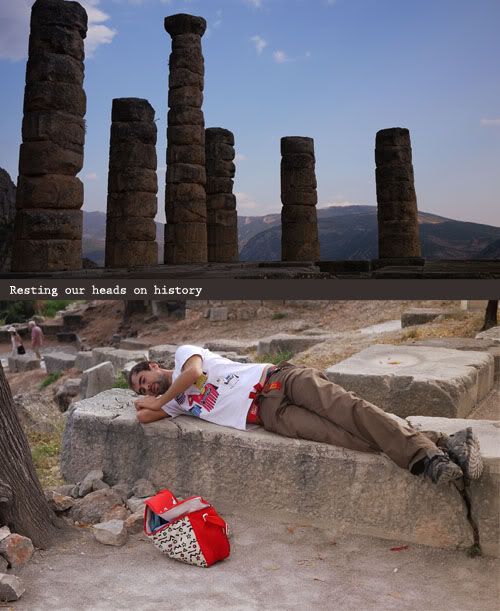
First day in Delphi, first taste of ancient Greece. Walking from the little town towards the ruins features a most excellent perspective of the land from high up the mountains. It was nothing like what I expected it to be, but thats normal I guess, it was much much more. The ancient ruins sit facing a grand valley almost covered entirely with olive trees, which while passing by them on our way up, looked quite ancient as well.

We saw The Charioteer, the most acclaimed piece of sculpture according to the guide who spoke in such a slow yet loud manner, enunciating in such a way that reminded you of Discovery Channel documentaries. I think The Charioteer has really nice eyelashes, yes - he has eyelashes made of bronze and inlaid eyes that pierced through you.

My biggest curiosity in Delphi was the Oracle and unfortunately there weren't many answers for me on site. The locals knew few or just the very basics of its history, perhaps it was too hocus-pokus to retain in their memory. I did some research anyway and discovered that Apollo, the main god-boss of this region, defeated the serpent Python, a son of Gaea (earth mother goddess, the first object of worship before Apollo) who was said to rule over the land and by doing so, buried its remains under the ground. A crack in the mountain, where the dead Python lay, released some hallucinogenic fumes that made the Oracle speak.
Interestingly the symbol of the Python or snake used to be linked to wisdom. Take the ouroboros symbol of the snake eating its own tail, for example, and how it symbolized the endless cycle of birth, death, and rebirth - constant renewal. In fact, the Caduceus, or the symbol for medicine and commerce reveals the serpent as well. Whats curious is how these symbols have evolved over history as Christianity began and replaced pagan beliefs and changed the meanings of symbols like the serpent into the devil. Being raised Catholic, I often notice pictures of the Virgin Mary stepping on the snake, the famous one who tricked Eve into biting into the forbidden apple of truth.
In the ancient ruins near the temple of Apollo is also the omphalos, or the navel of earth. The word Delphi also comes from two distinct greek words meaning "hollow" and "womb". Apollo himself was also known as Delphinio, or the Delphinian, "One from the Womb". Already a link is established between the former worship to Gaea, the mother goddess, the womb to which all life is born.
There is so much more to be explored as more and more links are established the more we discover and learn. Stay tuned.


No comments:
Post a Comment